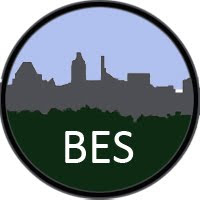This research was supported by funding from the NSF Long-term Ecological Research (LTER) Program. This material is based upon work supported by the National Science Foundation under Grant Nos. DEB-1637661 and DEB-1855277. Any opinions, findings, and conclusions or recommendations expressed in this material are those of the author(s) and do not necessarily reflect the views of the National Science Foundation.
The Baltimore Ecosystem Study has been a National Science Foundation Long Term Ecological Research (LTER) site since 1998. Visit other LTER sites.
 |
 |

CompHydro
Today, cutting-edge advances in environmental sciences often are made with the aid of computational research using “big data” sets that are publicly available online. Scientists use big data to model […]
BES Breakdowns – Take a dive into a recent scientific paper
‘Towards an urban marine ecology: characterizing the drivers, patterns and processes of marine ecosystems in coastal cities’ by Peter A. Todd, Eliza C. Heery, Lynette H. L. Loke, Ruth H. […]
Back to the wild: how ‘ungardening’ took root in America
Our co-PI Dr. Christopher Swan talks about his rewilding efforts in Baltimore. Could greening vacant lots and ‘ungardening’ yards can lead to more ecosystem services and better public health? Read […]
Watershed Studies
Brief description The watershed approach, i.e. monitoring inputs and hydrologic outputs of nutrients, has long been fundamental in ecosystem ecology, and is an important component of many sites in the […]
Biodiversity
Biodiversity is defined broadly as the variety of form of life on the planet. The Baltimore Ecosystem Study seeks to document and understand biodiversity in cities, as the placement, removal […]
How Baltimore is saving urban forests – and its city
How did Baltimore become an improbable green model for cities around the world and how was the Baltimore Ecosystem Study part of it? Find out here.
Integrating Chemistry and Earth science (ICE)
A Collaborative Network for Research, Education, and Application
Brief description The Baltimore Ecosystem Study is a collaborative that aims to improve the understanding of how Baltimore works as a social-ecological place. This is a big job that requires […]
FEATURED TOPICS AND EXPERTISE
The Baltimore Ecosystem Study (BES) is dedicated to informing sustainable cities through advancing an understanding of urban ecosystems. Since 1997, BES has fostered a collaborative network of scientists, sociologists, urban […]
Education and Outreach
The Baltimore Ecosystem Study (BES) education program is tasked with infusing BES science into the public sphere. Fostering an understanding of the metropolis as a social-ecological system lies at the […]